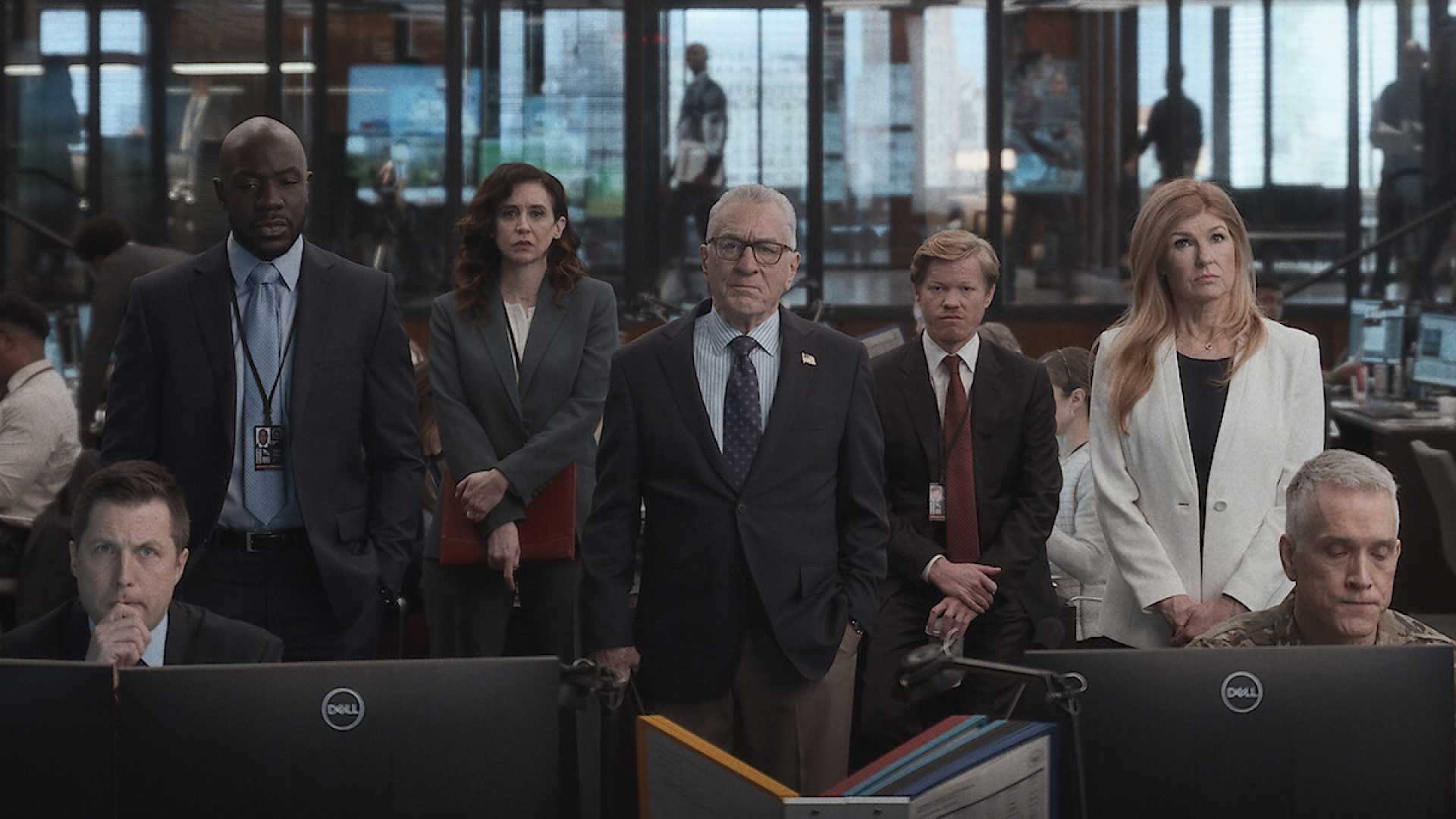Entertainment
Former President Tackles Cyber Conspiracy in New Netflix Thriller

LOS ANGELES, CA — In a suspenseful new limited series streaming on Netflix, a catastrophic cyberattack forces former U.S. President George Mullen, portrayed by Robert De Niro, out of retirement. As he embarks on a dangerous mission to uncover the truth behind the attack, he navigates a landscape rife with disinformation and personal turmoil.
The gripping narrative unfolds as Mullen discovers that the cyberattack, which resulted in numerous fatalities, was orchestrated by members within Congress, including Speaker of the House Richard Dreyer, played by Matthew Modine, and his own daughter, Alex, portrayed by Lizzy Caplan. The revelation comes amid the political backdrop of a deeply polarized nation, struggling with a legislative standstill that has persisted for 18 months.
Executive producer and co-showrunner Eric Newman discussed the show’s unconventional plot structure, stating, “There’s this unofficial rule about writing thrillers, that you’re supposed to start with the ending and work backwards. We did not do that.” This approach keeps viewers guessing until pivotal moments in the series.
Mullen’s decision to address the nation about the conspiracy unravels his personal life, as he grapples with the knowledge of Alex’s involvement. In a poignant moment, the former president chooses to abandon his prepared remarks to expose her complicity and that of her co-conspirators, resulting in tumult within the House Chamber. “There are going to be a lot of questions about whether this is a happy ending,” Newman noted.
With commentary on individual integrity and the quest for truth amid chaos, Mullen’s journey reflects broader societal themes. “The truth is hard to come by, and it’s a very lonely place to be for an individual,” Newman explained, hinting at the moral complexities faced by Mullen.
As Mullen dives deeper into the investigation, aided by Speaker Dreyer, the plot takes a significant turn as the motivations behind the Zero Day attack are revealed. Dreyer entices his colleagues to unite under a common cause, illustrating how desperate circumstances can lead to morally questionable decisions. “They weren’t looking for money, they weren’t looking for revenge; they were looking to make the world a better place. And a lot of the worst endeavors in human history begin that way,” Newman remarked.
Throughout the episodes, Mullen experiences hallucinations, leaving him to question his mental stability. “When Noah [Oppenheim] and I designed the season, we made a pact that Proteus was being used, but it should be open to interpretation,” Newman hinted, adding complexity to Mullen’s character.
In a notable instance, Mullen discovers an object in his bird feeder, which leads him to suspect external tampering. The examination of these hallucinations—and the question of whether they stem from the cyber weapon Proteus—serves as a narrative pivot, as Mullen confronts both physical and psychological threats.
The series explores the mechanics of the cyberattack itself, driven by the show’s commitment to authenticity. Clint Watts, a cybersecurity expert consulted during production, helped the creators present technical details in a digestible manner. “The characters are laying out, ‘This is the virus. This is how it jumped,’ and it became the thing that it was,” Watts explained, emphasizing clarity for viewers.
As the series progresses, Mullen finds himself in increasingly challenging positions, culminating in a private meeting with Dreyer. Their conversation dives deep into the nature of institutional trust in government and the implications of transparency during emergencies. Even after revealing the involvement of Congress members, including Alex, Mullen retreats to his estate, grappling with the consequences of his revelations.
In the closing scene, Mullen stands before an expansive body of water, a visual metaphor for his acceptance of the sacrifices made for honesty in political office. “He may not have much left, but he’s got his integrity. And I think that’s not to be discounted,” Oppenheim clarified, wrapping up Mullen’s tumultuous journey.
The series not only showcases the talent of a star-studded cast but also raises critical questions about accountability in governance and the tenuous nature of truth in a world overshadowed by misinformation. With a blend of drama, suspense, and ethical dilemmas, the narrative hooks audiences while prompting reflection on the state of democracy.












